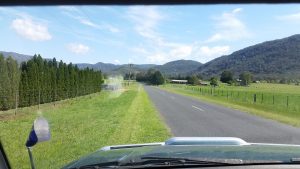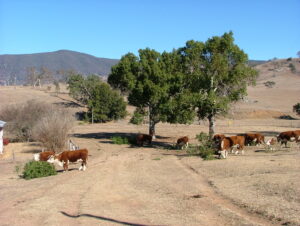In Australia bank de-regulation has allowed banks to take advantage of borrowers without any rules to regulate those moneylenders.
Imagine driving on country roads and major highways without any rules. Borrowing from banks is much the same. Banks have taken control and because they bleed borrowers dry, they are rich enough to fund many of those supposed to be helping borrowers. Those receiving bank funding will never help the borrowers if it reduces bank profits.
Borrowing from banks is much the same. Banks have taken control and because they bleed borrowers dry, they are rich enough to fund many of those supposed to be helping borrowers. Those receiving bank funding will never help the borrowers if it reduces bank profits.
So the challenge for farm and business borrowers is to find the right debt solutions. Aussie debt solutions are unique because of our seasons and the development around the edges of the country and sparse development inland. For farm borrowers the seasons are critical in loan management.
What are the options? There are lawyers. In my experience as Chartered Accountant with lawyer clients, most lawyers know little about loan finance and little about farming. Their solutions are standard legal ones rather than farming ones.
There are accountants, but most accountants focus on preparing financial statements and tax returns which is a highly skilled field on its own. They often get clients referred by the bank so they mostly do not want to offend the bank.
Then there are a lot of “shonky” operators who claim they can solve debt problems by “consolidating debt. That can be moving all the eggs from a number of baskets into one big basket which, if dropped, means scrambled eggs . Or they talk about tightening your belt and bankruptcy.
GBAC has been advising farmers in every part of Australia, for decades. Greg Bloomfield started his career with Price Waterhouse in Sydney and early on was dealing with some of the biggest names in agriculture. His grandfather and great grandfather had been farmers. Greg became partner in a medium sized city firm of Chartered Accountants, then established his own firm, GBAC.
In 1980s he acquired a 9,000 ac sheep property in the NSW Central West and bred Merinos from Haddon Rig Rams. In 1990 he purchased a 3,300 ac beef cattle property in the Southern Tablelands of NSW that had been settled by his great grandfather. In 1986 he invented the Votergram service that gives every Australian a very effective voice to parliament. He was head of the largest branch and District Council in NSW Farmers. He formed FairGO to help people influence government decisions.
In 1987, when banks were de-regulated he invented Loan Apps, then called Moneygrams. They enabled borrowers to easily bargain for better loan rates and charges and cost $100. One of the first farm users saved $300,000 on his loan costs over the loan term.
Seeing that many people used his service to apply for loans were doing so because they had a problem with their existing loans and needed to refinance, he decided to devote himself to assisting them exit their old bank on the very best and most profitable terms. GBAC’s biggest debt write off was $5m and in two other cases it had 100% of the debt written off.
He was unhappy with the way banks treated borrowers for a reason. His widowed mother, with 3 young children and no financial skills at all, had been allowed by a Big Four bank to guarantee a relative’s business loans, on the security of her home. The business failed and the bank took the family home. Greg never forgot! So when banks were de-regulated in 1987 he converted his Chartered Accountancy practice into a bank loan consultancy.
At the same time as running his Chartered practice Greg also ran a couple of businesses to provide funds for the family. So he got to actually run his own businesses and farms as well as consult others. There is nothing like doing it yourself to learn how it should be done.
That is why GBAC has a focus on farm and business debts. He and his firm are highly skilled at analysing what the bank has done and “persuading” it to write off some of the debt to compensate the borrowers for not looking after them properly as banks did before de-regulation.
When Greg considers loan solutions or debt solutions he is looking first at the problems and then for solutions that suit the particular business or farm.
Businesses are usually affected by the general economy, health of owners and succession plans.
Farms are affected very much by seasons and commodity prices, as he learned on his own place.
Loans are easier when the season is like this-
 More difficult when it is like this-
More difficult when it is like this-
Both are affected by government policy. Greg wants the outcome to suit the particular business or farm. His farm apps enable very competitive refinancing and his Votergrams allow him to report improper bank practices to each of the 225 Federal Members of Parliament for their action, like the Banking Royal Commission.
Treat banks like bulls. Never turn your back on them. If they give you a hard time, send them to the butcher. Never let your home or farm be sold up on you without a very serious fight. When you want good fighters in your corner, give GBAC a call on 0428 417 496. They will be very happy to oblige.

 Borrowing from banks is much the same. Banks have taken control and because they bleed borrowers dry, they are rich enough to fund many of those supposed to be helping borrowers. Those receiving bank funding will never help the borrowers if it reduces bank profits.
Borrowing from banks is much the same. Banks have taken control and because they bleed borrowers dry, they are rich enough to fund many of those supposed to be helping borrowers. Those receiving bank funding will never help the borrowers if it reduces bank profits.
 More difficult when it is like this-
More difficult when it is like this- ne bank, in making a variation put a clause in the middle of the variation agreement reducing the term of the loan from 15 years to 15 months, spelling disaster for the farmers. Never trust the bank!
ne bank, in making a variation put a clause in the middle of the variation agreement reducing the term of the loan from 15 years to 15 months, spelling disaster for the farmers. Never trust the bank! Farm loans are much like farm fences. The make buying or running a place easier. They take a good bit of work to set up and if you look after them well they are very effective at doing the job.
Farm loans are much like farm fences. The make buying or running a place easier. They take a good bit of work to set up and if you look after them well they are very effective at doing the job. Ask the bank why it wants to approve your loan within 10 minutes. The likelihood is that your loan will be approved by a computer with very little human input. And you know what happens with computers when they play up!!! The fact is that the bank’s computer cannot tell with any accuracy whether or not you can cope with the loan for which you have applied. To some extent that is because the computer only gets to receive a small bit of information about you. The bank will rely on its ability to sell up your home, farm or business if you do not obey all the loan conditions it has signed you up to.
Ask the bank why it wants to approve your loan within 10 minutes. The likelihood is that your loan will be approved by a computer with very little human input. And you know what happens with computers when they play up!!! The fact is that the bank’s computer cannot tell with any accuracy whether or not you can cope with the loan for which you have applied. To some extent that is because the computer only gets to receive a small bit of information about you. The bank will rely on its ability to sell up your home, farm or business if you do not obey all the loan conditions it has signed you up to. 